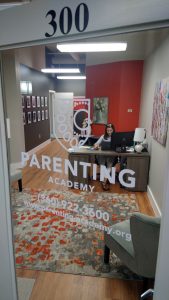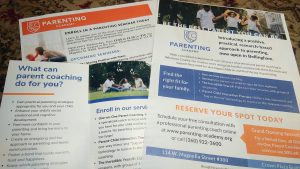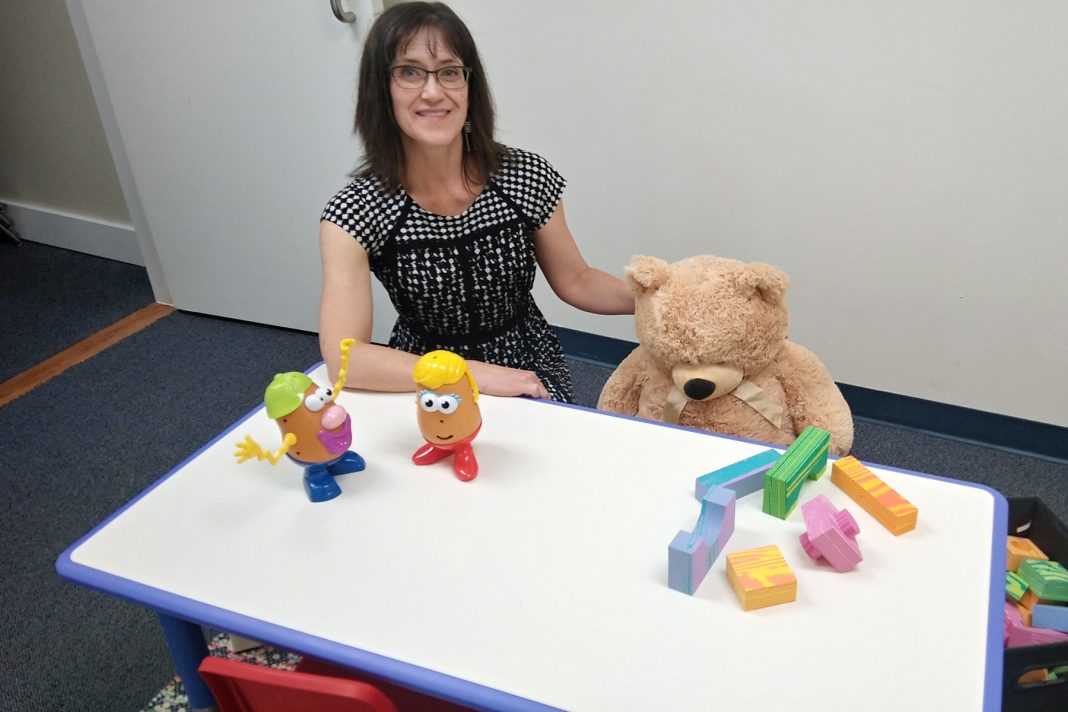One of the most complex challenges one can face in life is parenting. While there’s no single guide to getting it right, there are plenty of ways it can go off track. Fortunately, the more we learn about biology and psychology, the more we can understand healthy relationships. We know that the amount of time a baby is held has an incredibly important impact on how their brain forms. And we know that how we act toward children can teach them what to expect from other people through their lives.
Now there’s a group of local professionals to help both parents and children get it right. In March of 2019, downtown Bellingham’s Parenting Academy opened its doors to offer individual and group classes and coaching sessions, as well as hands-on, one-on-one guidance. Program Director Megan Brown Douglas explained what might attract a client to their services: “If you’re looking to gain confidence in parenting, if you’re looking for some direction, or the solution to a particular problem. The base of all this is the parent-child relationship—you’re not going to get anywhere without that.”
Clients come to them through Whatcom County grade schools and middle schools, the Whatcom Dispute Resolution Center, the YMCA, and family physicians. Once connected, families can pay for services on a sliding scale, qualify for scholarships, or work with their insurance company to get the assistance they need.

The staff includes three parenting coaches, all of whom hold Master’s level degrees in mental health or social work, and all certified in one or more evidence-based intervention styles. Megan Brown Douglas has been practicing Parent-Child Interaction Therapy for 15 years, in addition to overseeing the program aspects of the Parenting Academy and working as a licensed independent clinical social worker. She is sure to emphasize the “evidence-based” aspect of the Parenting Academy’s work, which means that every practitioner’s advice is grounded in the same facts, and guided by proven outcomes. “Parents have said to me, ‘This is the only thing that has worked.’”
The different kinds of assistance fall into a few categories, including Parent-Child Interaction Therapy, which sets the family up with one-on-one coaching to improve a parent’s relationship with their child when it matters the most: “in the moment.” Triple P Positive Parenting Program offers insight into positive discipline styles, a refreshing and effective change from using negative punishments, in a curriculum that lasts through the teen years.
Without a vocabulary to explain themselves, infants can be a mystery to even the most attentive parents, and the Parenting Academy is prepared to help there, too. Promoting First Relationships helps a parent understand what their infant or toddler might be thinking or feeling at any given time, and focuses on attachment styles, since the way a child sees their parents behave toward them helps them decide how to relate to people. Incredible Years is a program in a group setting that helps adults adjust to being a parent, and gives concrete strategies to help a baby learn and grow.

The Parenting Academy also offers 50-minute seminars in the middle of the day. Parents can bring a lunch with them and pick up valuable tips that range from staying positive with toddlers and teens, to handing everyday stresses with grace. The scheduling is designed to allow working parents to attend during their lunch hour, so they don’t have to miss any valuable family time.
One of the more eye-catching methods for learning involves having the child and parent together in a room with toys or other hands-on activities. In a separate room, a therapist listens through a headset and watches both through a camera and a window made of one-way glass as the parent and child interact. Through a small earphone the parent wears, the therapist can give insight about why the child is behaving the way they are, and what the parent can do to make their time together more positive and constructive.

Barbara Lupo, the head of Donor Development at the Brigid Collins Family Support Center, is understandably excited about the Parenting Academy’s potential. She had left the workforce, but didn’t quite know what to do with herself. “I’m not a very good retired person,” she says with a smile. She went to work at Brigid Collins and once there immediately began planning the development of the Parenting Academy’s program.
She’s proud of the fact that the funding for the Parenting Academy’s three-year pilot program came exclusively from private donors, as opposed to grants. “One of our largest funders was a client at Brigid Collins years ago. When I told her about the concept of the Parenting Academy, she told me she and her husband still use the same strategies they learned back then.”
Praise like that is incredibly validating for a group whose mission is nothing less than preparing kids for a lifetime of success. And their help is only a phone call away for parents that want a hand making the most of their relationship with their child.
Sponsored










































